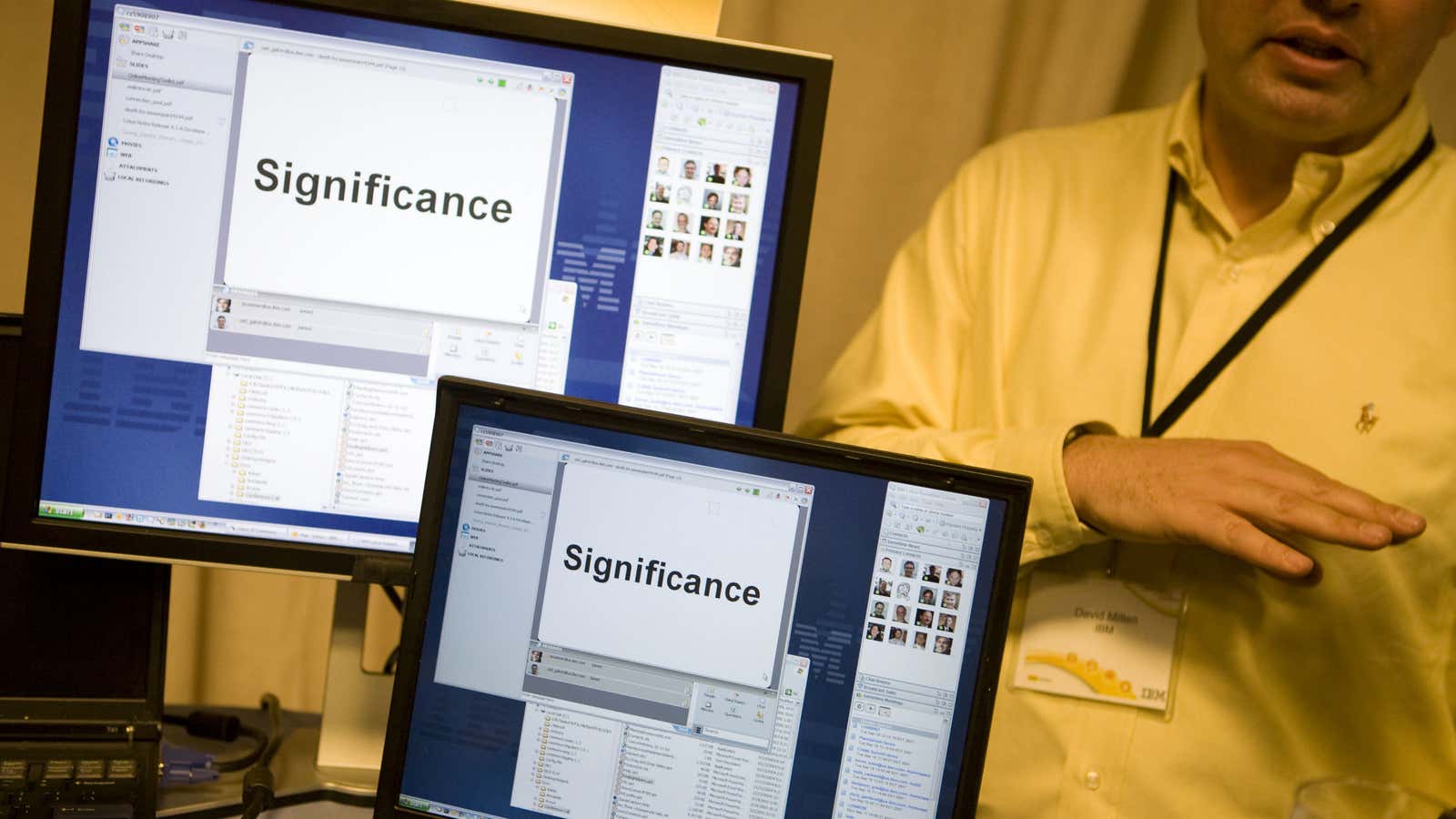International Business Machines (IBM) reported earnings today that beat analyst estimates, causing shares to rally more than 3.3% in after hours trading. Earnings, which had been declining for the last few quarters, were flat year-over-year when adjusted for currency discrepancies, as the company brought in $29.3 billion in the fourth quarter. Though investors have reacted positively to the report, they might want to do a reality check: nearly all of IBM’s money-making software businesses are a decade old.
IBM’s software business accounts for more than a quarter of the company’s revenue ($7.9 billion) and was the only business segment that grew from fourth quarter 2011. Software and business solutions are generally considered to be the future of IBM, which evolved from a hardware-oriented company into an enterprise technology behemoth. IBM’s early successes in this venture were based on smart acquisitions of companies like Tivoli, which built software that automated enterprise computer systems, and have helped IBM abandon its hardware business.
Far be it from us to play down the value and foresight of IBM’s M&A department a decade ago. IBM acquired Lotus in 1995, Tivoli in 1996, and Rational Software in 2003. However, the fact that these old, outdated players are still some of the most decorated pieces of the company is problematic. In fact, they were among the only divisions named in the company’s quarterly earnings statement.
From the earnings report:
Revenues from IBM’s key middleware products, which include WebSphere, Information Management, Tivoli, Lotus and Rational products, were $5.5 billion, an increase of 5 percent (up 6 percent, adjusting for currency) versus the fourth quarter of 2011…Revenues from the WebSphere family of software products increased 11 percent year over year. Information Management software revenues increased 2 percent. Revenues from Tivoli software increased 4 percent. Revenues from Lotus software increased 9 percent, and Rational software increased 12 percent.
True, IBM has made steady acquisitions over the last few years, bolstered by its massive cash flow, in an attempt to provide more business technology services and software. But these acquisitions clearly haven’t made the same waves as its old acquisitions, making IBM seem reluctant to truly embrace new technologies. The company’s services business, despite returning bright-looking margins, also looks stagnant; that segment’s revenues were flat year-on-year once adjusted for currency.
Today, IBM is competing against old dogs like SAP and Oracle, and new ones like Salesforce, ServiceNow and Workday, which are all jumping for a piece of the cloud computing market. In the rapidly evolving world of software and enterprise IT, IBM will eventually have to do more than rely on old programs if it wants to survive.
